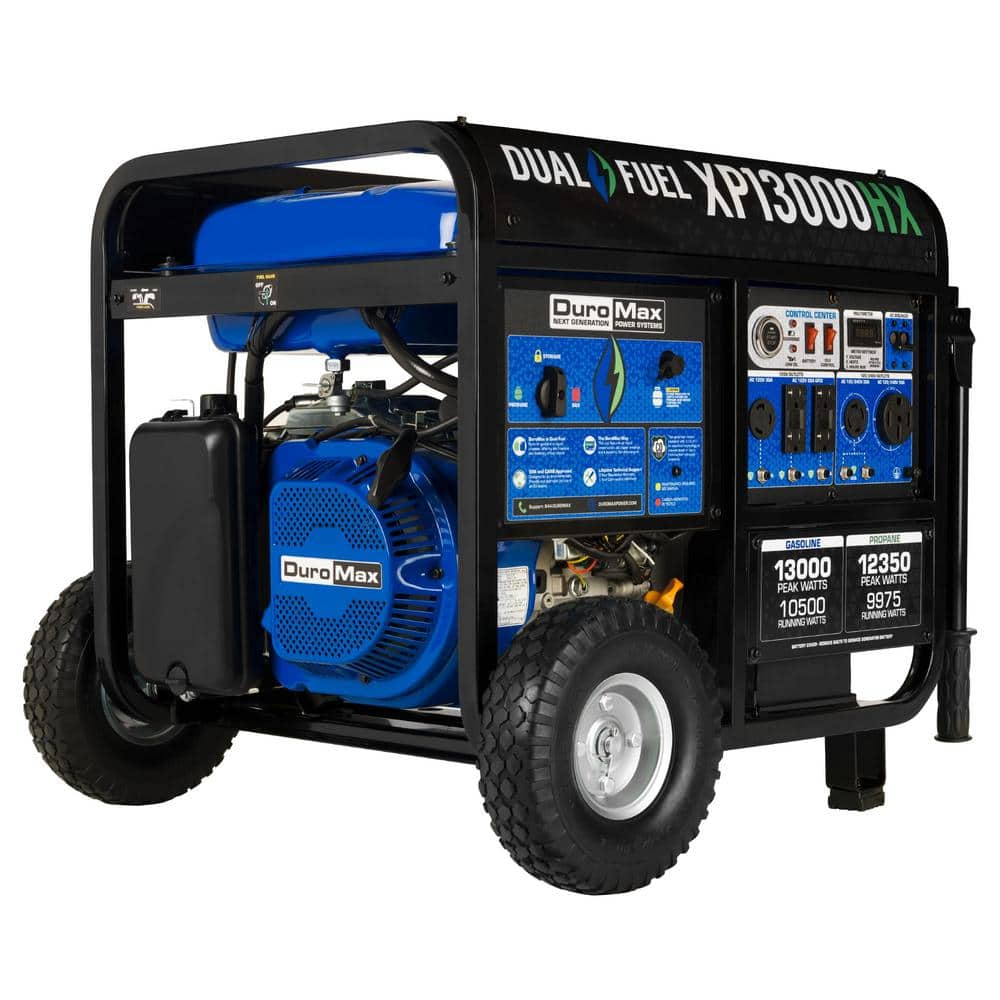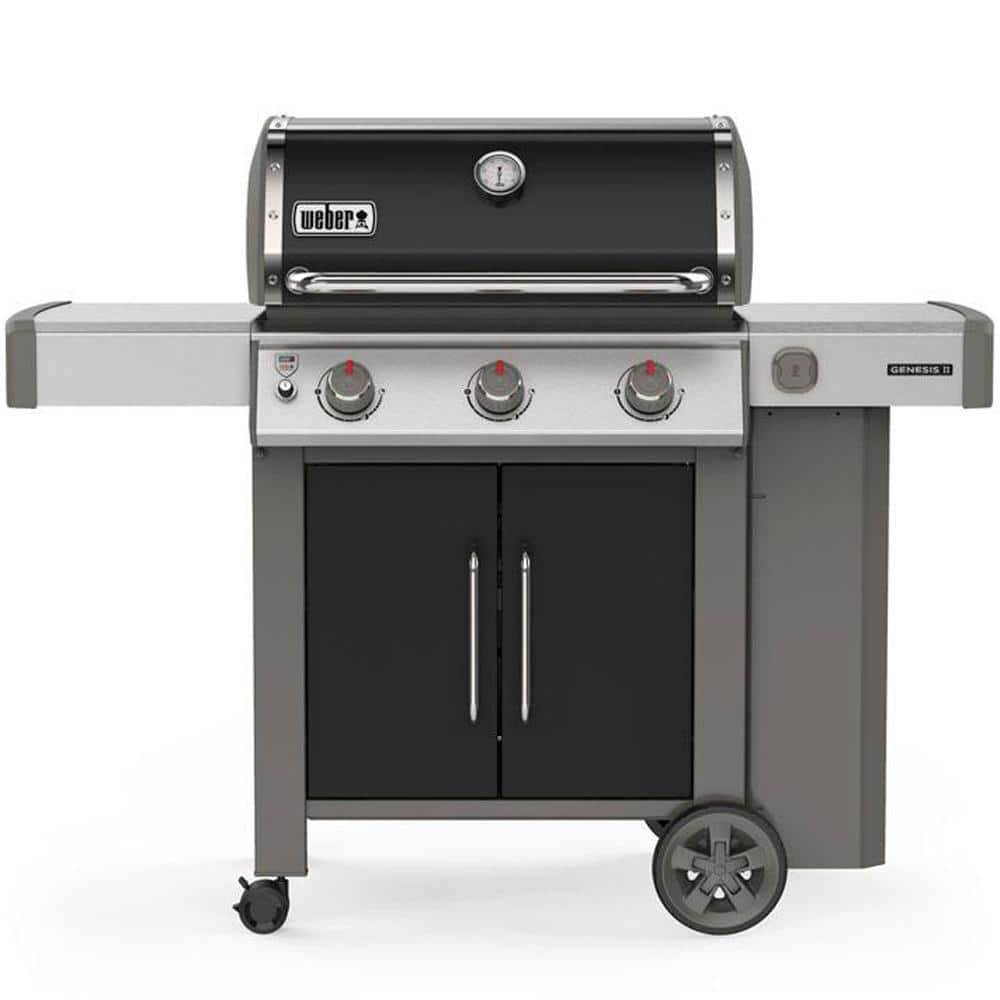DUROMAX 13000/10500-Watt Dual Fuel Electric Start Gasoline/Propane Portable Home Power Back Up Generator with CO Alert Shutdown
The XP13000HX is the crown jewel of the HX Series with 13,000-Watt of POWER. This unit provides the power normally found in stationary home standby generators but in a more affordable, portable package. With a 500 cc OHV Duromax Engine, this workhorse is PERFECT for HOME BACK UP and can power most household essentials such as lights, appliances and even central A/C systems during any power outage, storm or emergency event.
The XP13000HX is the crown jewel of the HX Series with 13,000-Watt of POWER. This unit provides the power normally found in stationary home standby generators but in a more affordable, portable package. With a 500 cc OHV Duromax Engine, this workhorse is PERFECT for HOME BACK UP and can power most household essentials such as lights, appliances and even central A/C systems during any power outage, storm or emergency event. BE READY FOR ANYTHING with Duromax’s ALL NEW HX Series. This brand new, Dual Fuel portable generator lineup features CO Alert Technology that will automatically shut down the generator if an unsafe level of carbon monoxide is detected. Protect your loved ones and enjoy safe and easy operation with Duromax.
- All-new control center with a digital multi-meter, push-button start and a front-facing fuel interface allowing you to change your fuel type in seconds, the digital multi-meter displays voltage, frequency, total hours run and hours until the recommended maintenance
- Equipped with Duromax CO Alert technology that will automatically shut down the generator if an unsafe level of carbon monoxide is detected
- Built using a powerful 500 cc OHV Duromax engine and features all copper windings designed to make your generator last for years
- Fully loaded power panel includes four 120-Volt GFCI household outlets, one 120-Volt 30 Amp outlet, one 120-Volt/240-Volt 30 Amp twist-lock outlet and a heavy-duty 120-Volt/240-Volt 50 Amp outlet making it transfer switch ready
- Onboard the XP13000HX are individual circuit breakers, idle control and a low oil sensor
Additional information
| Product Height (in.) | 27.5 |
|---|---|
| Product Length (in.) | 40 |
| Product Width (in.) | 29 |
| Certifications and Listings | CARB Compliant, EPA Approved |
| Manufacturer Warranty | 5 Year Warranty |






by Steve
I don’t do summaries. Works fine.
by Brent
It was a great purchase, and a great price point.
by Mike
Reliable and effective. Just what our home needed. 3 years and running strong….never an issue. Remember to register when you receive. I did so late but still hoping to receive my free cover!
by Steven
It looks nice, although they could have done a better job concealing the wiring harness and putting all the wires in the protective sheathing. It was nicely packaged and all the parts were there when I assembled it. The engine took a minute to start, but it runs nicely while not being too loud. I have not put it under a load yet.